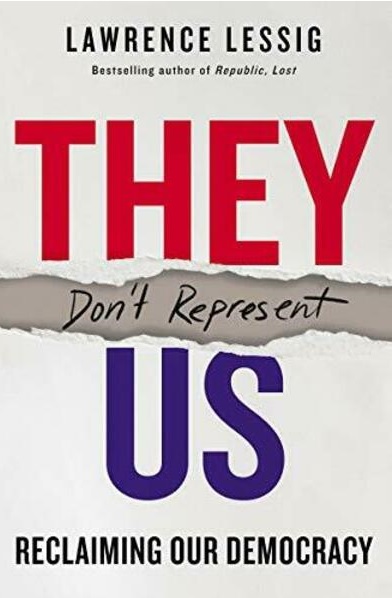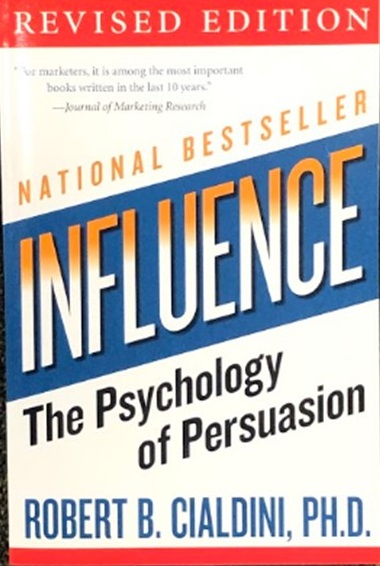What is the status of democracy in the United States today? Harvard law professor, Lawrence Lessig, answers that question in his book They Don’t Represent Us: Reclaiming our Democracy.
They Don’t Represent Us is a comprehensive view on representativeness within a democracy and how it can be distorted or corrupted. Then it provides thorough answers to such issues we face as citizens and voters in the United States.
First, I’ll summarize the book and give some key takeaways.
Summary
Lessig divides the book into two parts: Flaws and Fixes. As the names suggest, part one discusses the issues with the U.S. democracy, and part two highlights some solutions to implement.
In part one, the book emphasizes that each person should have an equal right to vote without unfair disadvantages, i.e., voting stations without wheelchair accessibility and unequal distribution of voting kiosks.
Lessig describes issues highlighting non-representativeness, including super PACs, the electoral college, the Senate, gerrymandering, and presidential primaries.
Mainly, the book highlights corruption in the candidate selection process. Instead of citizens nominating and voting for candidates, more powerful people select candidates who come before the citizenry for election.
To highlight this point, Boss Tweed famously said: “I don’t care who does the electing, so long as I do the nominating.” The nomination vs. election flaw is a critical issue that Lessig argues.
Additionally, polarizing media has affected polling and which candidates receive press coverage. The book argues that we, the people, have many entertainment choices that overshadow citizens’ responsibility to be informed.
And, negative attack ads are more attractive to viewers than positive ads during election cycles.
Most striking, the book advocates for leniency on the public’s knowledge of political issues. Pop quizzes of people from any party on the street do not represent the whole of their party affiliation.
The remainder of the book focuses on solutions to the issues previously identified.
For instance, ranked-choice voting could be a valuable tool to allow a majority vote to elect candidates instead of a plurality. Or reform the electoral college Winner Take All system to elect the president.
Lessig also highlights the HR1 bill proposed by Speaker Nancy Pelosi (D-CA) as a necessity to help people exercise their right to vote.
Buy They Don’t Represent Us
Key Takeaways
Thought-provoking ideas like ranked-choice voting were game-changers for me. It never occurred to me that people can be underrepresented in a democracy by using the one person, one vote model.
Instead, ranked-choice voting opens a path for one candidate to have a clear majority victory instead of a plurality victory, exemplified by the Lincoln presidency.
Watch this video to learn more about how ranked-choice voting works:
The Senate’s representation, or lack thereof, surprised me as well. I loved how the book explained how the Senate occupies a strange place in our government.
For instance, the Senate’s purpose is to represent the states. Yet, the people elect senators. If the people elect senators, should the senators also represent their states’ populations just like the House?
James Madison thought so, but he forewent that idea and compromised on this issue by implementing equal representations of states in the Senate.
Race relations was a tender theme, as well. I enjoyed how Lessig framed the issue of race and the inequal right to vote. It brought the problem alive for me in a way I never thought about before.
For instance, the book cites that African Americans are disproportionately represented for many unfair reasons that the book discusses. It was one of the best explanations of race and the political system I had ever encountered.
Finally, equal representation resonated in my mind while I listened to the audiobook. I have watched several YouTube videos from Trump and Biden rallies, universities, marketplaces, and street corners with agony.
Most strikingly, the role of ‘citizen’ is a political office. We in the United States do not think about it that way. But, if we did, then we would be more inclined to participate in our electoral process.
Buy They Don’t Represent Us
For the most part, the book stayed politically neutral despite Lessig’s left-leaning views.
However, there were points in the book where it veered off-script towards a partisan bias. Notably, the book sharply criticized Senator Mitch McConnel (R-KY) for not allowing a voting rights bill called HR1 to come before the Senate for a vote.
HR1 covered many of the book’s topics, like gerrymandering, ranked-choice voting, and campaign funding. Regardless of what side of the aisle you espouse, the book’s critique of McConnel sounded more like a jab than maintaining scholarly discourse.
I’ll concede, however, that the book’s critique of Senator McConnel could be justified. The frustration that voting rights became partisan through HR1 was a startling reminder that anything dealing with citizen’s rights should not be a divided issue.
They Don’t Represent Us ultimately achieved that objective to portray voting rights as non-partisan. At least, it should be non-partisan. But, the book fell short in explaining how to be non-partisan when dealing with voting rights.
Again, I’ll acknowledge that saying how to be non-partisan wasn’t the purpose of the book. It was a thought that I had while listening to the book that would have been good to address.
Conclusion
They Don’t Represent Us was a phenomenal book. I believe that leaders must know their government’s processes.
We must be aware of diverging viewpoints, issues, and solutions from others. That’s why They Don’t Represent Us is a powerful tribute to political literature.
Overall, They Don’t Represent Us is a wake-up call for leaders of all positions and ranks.
If you want to buy They Don’t Represent Us, click here.
Have you read this book? Let me know what you think in the comment section below.
Photo Credit
Featured Image: Unknown Author is licensed under CC BY






Even though politics is a topic that many people do not like to discuss and/or learn about, I sincerely enjoy learning about the different aspects of the American political system. This book seems to touch on very interesting ideas and I think you did a great job at pointing out the good aspects of the book. I believe that American citizens should inform themselves of how the government works so that they can be become better informed voters.
Alejandro,
You’re right. Politics is a difficult subject. The heart of this book deals with non-partisan issues with voting and representation, and I agree with you that these are interesting ideas. I’m glad you enjoyed the article!
Robert
This sounds very interesting. I think that T.V. does a great deal to misrepresent citizens who follow certain political parties, always picking a certain type, consequently making that particular party look bad (or good). I don’t watch T.V. for many reasons … I prefer to research my news.
This is probably a book that everyone who is interested in politics and in improving their government should read, in any country. Regardless of how corrupt certain officials can be, I always find that most citizens are quick to point the finger at the government, but forget that they are also part of their country and represent it just as much, and so they should also lead by example.
Christine,
The book does talk about how polarization has taken away from representation. I’m glad you enjoyed the review!
Robert
I am a voracious reader and came upon your website as it was discussing the book They Don’t Represent Us.
As citizens, we must be aware of divergent and often diverse viewpoints, issues, and solutions that contribute to our society. That is why They Don’t Represent Us will be a great book to read. I subscribe to two libraries and I will make it a point to pick it up, if available.
Thanks for a good review.
Aparna
Aparna,
We do need to listen to opposing viewpoints. I hope you’ll enjoy the book!
Robert
This book seems like it highlights the issues that happened in a counter a few years ago. Which is definitely a learning for the world. Us citizens of any country should get the choice to choose the leader who will best suit our needs, not the other way round!
I would like to read this book.
Many thanks for the review of They don’t represent US.
Habib,
Indeed, citizens should be able to choose their leaders. Let me know how you like the book!
Robert